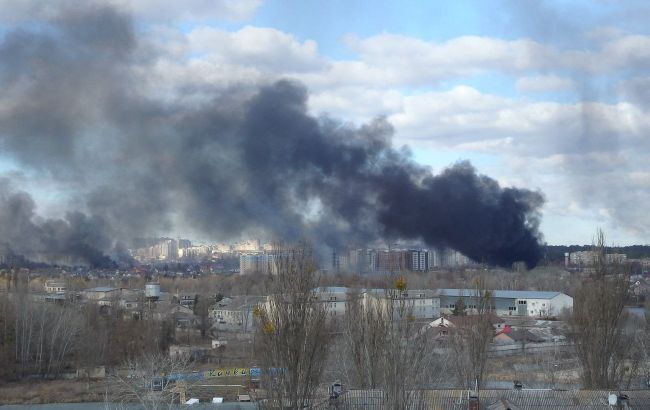Ukraine war pumps 180M tons of CO2 into atmosphere, causing $33B in damage - Ukrainian climatologist
 What are the global consequences of the war in Ukraine? (photo: 5 facebook com/NatalkaPhotographer)
What are the global consequences of the war in Ukraine? (photo: 5 facebook com/NatalkaPhotographer)
The war in Ukraine is speeding up climate change, and that's a global problem. Greenhouse gas emissions from military operations have consequences far beyond Ukraine, and they're already too big to ignore.
In an interview with RBC-Ukraine, Vira Balabukh, PhD in Geography, Head of the Department of Applied Meteorology and Climatology at the Ukrainian Hydrometeorological Institute of the State Emergency Service of Ukraine and the National Academy of Sciences of Ukraine, addressed this question.
The world will feel the consequences of war
"The Ministry of Environmental Protection assessed the direct and indirect greenhouse gas emissions caused by military actions in Ukraine. From February 2022 to February 2024, up to 180 million tons of CO2 equivalent emissions were generated. Russia caused $33 billion in environmental damage over 24 months of war," the scientist said.
Rising emissions of greenhouse gases drive climate change. War worsens the process. The number of fires has surged, and fuel consumption has spiked as people are forced to flee their homes. International airlines also have to bypass the airspace of Belarus and Russia, which significantly increases fuel use.
"We are talking about consequences on a planetary scale, because greenhouse gas emissions into the atmosphere are increasing, and they cannot be quickly removed from there," Balabukh said.
Dust storms could return to southern Ukraine
In the 1960s, southern Ukraine was frequently affected by dust storms. To counter the problem, tree belts were planted across vulnerable areas. For decades, they protected the region.
"The destruction of forest belts in the combat zone creates a serious problem for us, because we are losing the protection we’ve had over the past 30 years. And now, with increasing wind speeds, rising aridity, and higher temperatures, the likelihood of strong dust storms occurring in the south is growing," Balabukh said.
These tree belts also helped trap snow, which in turn kept the soil moist. And the more moisture in the ground, the less likely it is that high winds will lift dust into the air.
In the same interview, Balabukh stated that global warming could open new opportunities for Ukraine's agriculture. The country may grow warm-weather crops that previously could not thrive here.

